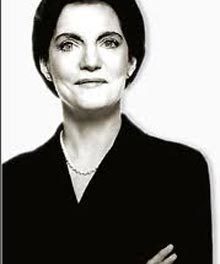 Of Dogs & Men
Of Dogs & Men
Trevor, from Tennessee
Our usual caveat: we’re willing to tackle nearly anything, but we are experts on very little. We are certainly not dog-behavior experts. And, even though we suspect this question is less about who in the dog-behavior debate is right or wrong, and more about Trevor’s sense of unsettlement, we did recruit a genuine dog-behavior expert, Kevin McHale, who was generous enough to help us field this question. Why? Because part of our answer will involve accepting the limitations of our own knowledge, and readying ourselves to learn more.
The consensus was to let Dr. Maggie head up this particular discussion, with her “ethicist” hat on.
Dr. Maggie: Happy to oblige, but that means I’ll import into this conversation the ethical paradigm I operate with.
Bernie: Perhaps we made a mistake.
Dr. Maggie: Likely. But that’s never stopped us before. To me—outside of the fact that I am an also an animal lover and supporter of Cesar Milan—Trevor’s question invites some interesting ethical issues.
Dr. Martha: As well as psychological and educational ones.
Dr. Maggie: Yes, absolutely. From a naturalistic ethical perspective, human beings are born to learn…continuously. There is no rest for the wicked, so to speak. This kind of ethics has at it’s core not what is “right” or “wrong,” but what is “more correct,” “more compassionate and in line with nature,” and what is “less correct”—or even “cruel.”
Bernie: Cruel is an intense word. How could something that is just “incorrect” be “cruel”?
Dr. Maggie: I’m using the word “cruel” to describe an action by human beings that—intentionally or out of ignorance—uses the nature of a creature (which should allow it to flourish as one of its kind) against it to harm it.
Dr. Martha: According to your framework then, the more we learn, the more we understand and perceive about other creatures—seeing them as they truly are rather than as what we might we project onto them – the more likely we are to be “correct”, and the less likely we are to be “cruel”.
Dr. Maggie: At least unintentionally cruel, yes.
Does Cesar Milan’s view of the psychology of “dog” – the nature and essence of what a dog is – invite us to see dogs and our relations with them more expansively? According to Mr. McHale, yes.
Mr. McHale: I’ve studied dogs for a long time as they are in nature, irrespective of what any particular human may want from them. That is, I think, how one begins to learn what they are. Dog Psychology is about seeing the dog in the moment, each moment, and interpreting what you see based on an understanding of the natural language dogs use: energy (emotional intent) and body language (posture, movement, with intent). We might employ this language to get what we want from them or to communicate with them, but what we’re employing is native to them, respectful of their natural way of being and communicating.
Bernie: Wait, what exactly does “energy” mean to you?
Mr. McHale: How you communicate who you are, what you need or want—you’re always expressing energy.
Dr. Maggie: So, by paying attention to that, an owner can see, for instance, whether a dog is expressing “dominance” by wanting to lie on you, or whether he’s just wanting contact and resting.
What dog psychology is asking us to attend to is, by definition, an expansion of perception, a present-ness of perception—of another creature, irrespective of our emotional wants.
Mr. McHale: That’s one way to put it, yes. And we know when we’re correct because the dog responds. The anxious one becomes, when we get things right, calm and balanced. The fearful, trusting. The obsessive one, worry free. The ball that used to drive him to run around in insane circles, panting, drooling and making crazy-eyes becomes an object he no longer has to worry about, and therefore one that he can enjoy with his owner. When that change happens, it is clear, if you’re looking at the language dogs use to express themselves.
Dr. Maggie: So what, I wonder, makes Trevor feel “cold” and “ignorant” and untrusting of his “heart?”
What followed was a lengthy and involved discussion of learning, dog psychology, energy and body-language, and…. well, therapy and rehabilitation. Two major issues came out of that discussion. The first is that, for whatever reason (habit, indulgence, ignorance), in the West we tend to conflate “loving animals” with infantilizing them—and therefore we often fail to notice what their “adult” selves need and are expressing to us. They need our care, but they need us to care about what and who they actually are, not our fantasies about who they are for us. Learning this can feel akin to realizing that one’s child is growing up. When they do, they have lives of their own, and need respect for that, not just a bottle, a kiss on a boo-boo, and a diaper change. That can be a painful transition for parents (of dogs or kids), one that may feel like their “heart,” their love, is no longer as effective as it once was. In learning to perceive animals (and people, as it turns out), more broadly – like learning anything—we have to be humble enough to let go of what we thought we knew, to be wrong, to stretch ourselves and ready ourselves to see something different.
When we expect ourselves to already know, to be right—by reason or by heart – we deny what we truly are: learning creatures. And then, we may feel “cold” or uncomfortable when things are not as we thought we knew or felt them… but the beauty of nature, of dogs, is that they continually remind us of what we are: learning creatures, who, when we are true to ourselves, are humble, and expect fallibility. That openness and fallibility don’t contaminate our hearts: they define them.
The second issue coming from our discussion is that though dog-psychology is important for all of us and can teach all of us—its tools, Mr. McHale reminds us, are particularly effective in “rehabilitating” dogs with issues (and their owners). What is true for us as therapists, and counselors, even as philosophers—is also true for any good friend, parent, mentor, or dog rehabilitator: creatures come to us in pain and out of balance. And we know what they think they want, what they wag their respective “tails” for initially: Love. Affirmation. Acceptance. And what do we give them? In their poor, sad, needy moments? Good friends, good therapists, and good dog-psychologists cut through their bad-habits, their blockages, their pain. We don’t just pat them on the head and give them a cookie. Why? Because we love what they are after: balance, truth, harmony, growth. They come in pain and we might offer a cup of tea or safe harbor, but then we begin the pruning, and once the pruning is done, we can give them new seeds for their new gardens, but not before.
How is it so different either for a dog or a dog owner? If we take our husbandry seriously, then we’ll want to learn to see dogs as they are and to respond to them not just with our hearts, but also with our full beings. For that we need to learn to see not only them, but also ourselves more humbly, more clearly. Ironically, the more clearly we see others as they are—as opposed to what we would like them to be or assume them to be, whether dog or human or owl—the more we see how like us they are, the more completely we can connect with them.
To see animals more fully as the creatures they are is also to see ourselves and to understand that sometimes we don’t see or feel as openly or completely as we thought. They, like everything else we love and invest in, offer us the chance not to just idly trust our hearts or our minds, but to trust that our hearts and minds are organs for learning, and to trust that our connection with all other creatures—because of what we are—is one of learning.







